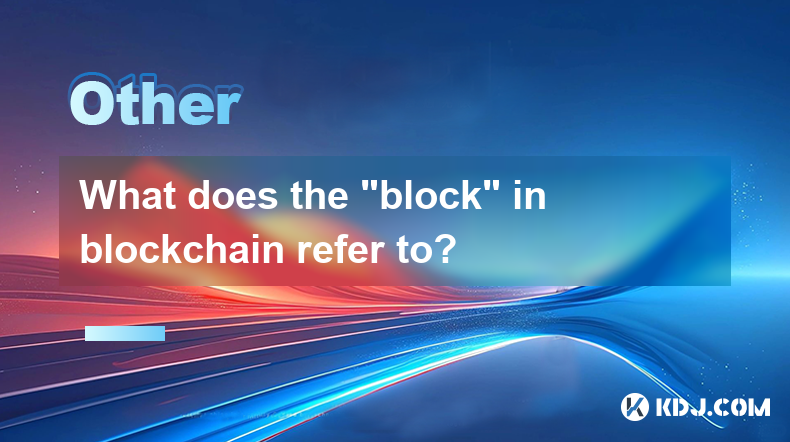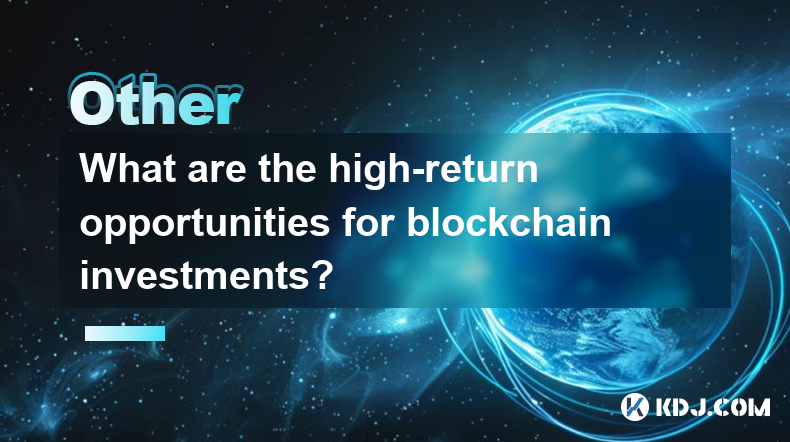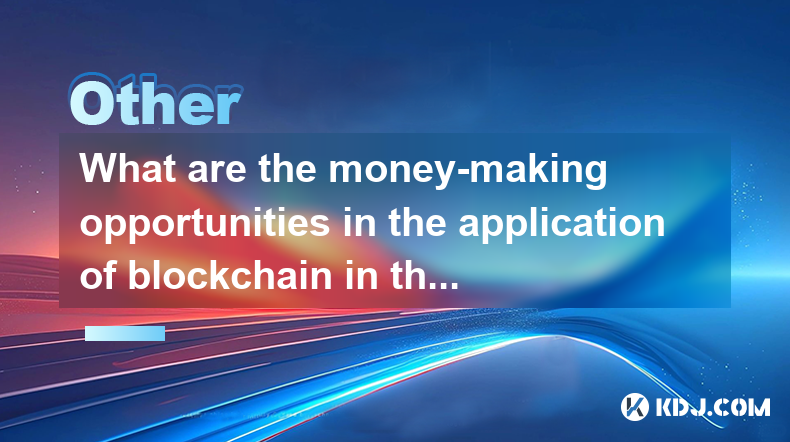-
 Bitcoin
Bitcoin $83,418.1551
-0.31% -
 Ethereum
Ethereum $1,808.8979
-0.41% -
 Tether USDt
Tether USDt $0.9999
0.02% -
 XRP
XRP $2.1463
1.00% -
 BNB
BNB $593.3907
-0.49% -
 Solana
Solana $120.0979
-1.63% -
 USDC
USDC $1.0001
0.00% -
 Dogecoin
Dogecoin $0.1689
-0.83% -
 Cardano
Cardano $0.6536
-1.17% -
 TRON
TRON $0.2370
-0.75% -
 Chainlink
Chainlink $12.8454
-0.75% -
 UNUS SED LEO
UNUS SED LEO $9.1245
-0.51% -
 Toncoin
Toncoin $3.2503
-4.22% -
 Stellar
Stellar $0.2527
-2.58% -
 Avalanche
Avalanche $17.8357
-1.69% -
 Shiba Inu
Shiba Inu $0.0...01231
-0.09% -
 Sui
Sui $2.2068
-1.49% -
 Hedera
Hedera $0.1623
-0.93% -
 Litecoin
Litecoin $82.5360
-2.34% -
 Polkadot
Polkadot $3.9567
-1.88% -
 Bitcoin Cash
Bitcoin Cash $306.9330
1.70% -
 MANTRA
MANTRA $6.2879
0.30% -
 Dai
Dai $1.0001
0.01% -
 Bitget Token
Bitget Token $4.4588
-1.48% -
 Ethena USDe
Ethena USDe $0.9992
0.01% -
 Pi
Pi $0.6376
24.33% -
 Hyperliquid
Hyperliquid $11.9460
0.08% -
 Monero
Monero $213.4997
-0.58% -
 Uniswap
Uniswap $5.8533
-0.79% -
 OKB
OKB $52.7441
6.99%
What does the "block" in blockchain refer to?
In blockchain, a block is a chronologically linked container of verified transactions, secured by cryptographic hashing of the preceding block, ensuring immutability and forming the chain's foundation.
Mar 18, 2025 at 02:00 am

Key Points:
- A "block" in blockchain is a container holding a batch of verified transactions.
- Blocks are linked chronologically, forming a chain.
- Each block contains a cryptographic hash of the previous block, ensuring immutability.
- The size and frequency of block creation vary depending on the blockchain network.
- Understanding blocks is crucial to grasping how blockchain technology works.
What does the "block" in blockchain refer to?
The term "block" in the context of blockchain technology refers to a digital container that stores a batch of validated transactions. Imagine it as a digital ledger page, recording a series of financial or data transactions. These transactions are grouped together and then added to the blockchain as a single unit – a block. This grouping is crucial for efficiency and security. Instead of recording each transaction individually, the blockchain processes them in batches, significantly improving throughput.
How are blocks created?
Block creation is a complex process that varies slightly depending on the specific blockchain network (e.g., Bitcoin, Ethereum). However, the core principle remains the same: miners (or validators in Proof-of-Stake systems) compete to solve a complex cryptographic puzzle. The first to solve the puzzle gets to add the next block to the chain, a process often referred to as "mining" or "validation." This process ensures the security and integrity of the blockchain.
What information does a block contain?
A block typically contains several key pieces of information. These include the timestamp of the block's creation, a unique identifier (hash), a cryptographic hash of the previous block, and most importantly, the list of transactions included in that block. The hash of the previous block is what creates the chain-like structure of the blockchain, linking each block securely to its predecessor. This linkage is vital for the blockchain's immutability.
What is the significance of the cryptographic hash?
The cryptographic hash is a unique digital fingerprint of the block's contents. Even a tiny change to the data within a block will result in a completely different hash. This characteristic is fundamental to the security of the blockchain. If someone tries to alter a past transaction, the hash would change, immediately revealing the tampering attempt. This makes manipulating the blockchain extremely difficult.
How are blocks linked together?
Blocks are linked chronologically, creating the chain aspect of blockchain. Each block contains the cryptographic hash of the preceding block. This creates an immutable chain of blocks, where altering one block would require altering all subsequent blocks, a computationally infeasible task. This chaining mechanism is the foundation of blockchain's security and its resistance to tampering.
What is the role of miners/validators in block creation?
Miners (in Proof-of-Work systems) or validators (in Proof-of-Stake systems) are responsible for verifying transactions and adding new blocks to the blockchain. They compete to solve complex mathematical problems, and the winner gets to add the next block and is rewarded with cryptocurrency. This process ensures the integrity and security of the blockchain by requiring significant computational power or staked cryptocurrency. The reward mechanism incentivizes honest participation.
What determines the size of a block?
The size of a block is determined by the specific blockchain's protocol. Some blockchains have a fixed maximum block size, while others allow for dynamic block sizes. A larger block size can lead to faster transaction processing but might also increase storage requirements for nodes on the network. The optimal block size is a subject of ongoing debate within various blockchain communities.
How often are blocks added to the blockchain?
The frequency of block addition, or block time, varies depending on the blockchain. Bitcoin, for example, aims for a block time of approximately 10 minutes. Ethereum, on the other hand, targets a block time of around 15 seconds. This variation reflects the different design goals and consensus mechanisms of various blockchains. A shorter block time generally leads to faster transaction confirmations but might require more computational power.
What happens if a block is invalidated?
Block invalidations are rare but can occur if a significant error or malicious activity is detected. In such cases, the invalid block is typically discarded, and the blockchain continues from the last valid block. The specific process for handling invalid blocks depends on the blockchain's consensus mechanism and its error-handling protocols. This process ensures the overall integrity of the blockchain.
Frequently Asked Questions:
Q: What is the difference between a block and a transaction?
A: A transaction is a single transfer of value or data. A block is a container holding many verified transactions, bundled together for efficiency and security.
Q: Can I see the contents of a block?
A: Yes, the contents of a block, including transactions, are publicly viewable on a blockchain explorer specific to the blockchain network you're interested in (e.g., blockchain.com for Bitcoin).
Q: How does block size affect transaction fees?
A: Larger blocks can potentially lead to lower transaction fees per transaction, due to better throughput. However, excessively large blocks can also strain the network.
Q: Is the blockchain immutable?
A: The blockchain is designed to be immutable. While theoretical attacks are possible, the practical difficulty of altering a block in a widely distributed blockchain is extremely high.
Q: What is the relationship between blocks and the blockchain's decentralization?
A: The distributed nature of blocks across many nodes strengthens the decentralization of the blockchain. No single entity controls the block creation or storage, making it resistant to censorship and single points of failure.
Disclaimer:info@kdj.com
The information provided is not trading advice. kdj.com does not assume any responsibility for any investments made based on the information provided in this article. Cryptocurrencies are highly volatile and it is highly recommended that you invest with caution after thorough research!
If you believe that the content used on this website infringes your copyright, please contact us immediately (info@kdj.com) and we will delete it promptly.
- Is Ethereum (ETH) Dead as an Investment?
- 2025-04-06 08:40:12
- Bitunix exchange launches the Ultra version of K-line (candlesticks) on its mobile app integrated with TradingView
- 2025-04-06 08:40:12
- As XRP Has Become the Focus of the Market Due to Ripple's Legal Victory and ETF Expectations
- 2025-04-06 08:35:12
- Trump-Themed Coins Dominate the List of Top-Performing Cryptos Today
- 2025-04-06 08:35:12
- Meme Coins Could Be Solana (SOL)'s Secret Weapon to $1,000
- 2025-04-06 08:30:12
- Did BlackRock's CEO Just Describe XRP Without Saying Its Name? Plus, One Ripple Alternative You Haven't Heard Of
- 2025-04-06 08:30:12
Related knowledge

Is the ranking of Chinese blockchain apps real and reliable?
Apr 04,2025 at 09:01pm
The ranking of Chinese blockchain apps has become a topic of interest for many in the cryptocurrency community, as it provides insights into the popularity and adoption of blockchain technology within China. However, the reliability and authenticity of these rankings are often questioned. This article aims to delve into the factors that influence these ...

What are the future development trends of blockchain game development?
Apr 03,2025 at 05:00am
Blockchain technology has revolutionized various industries, and gaming is no exception. As we look to the future, several trends are set to shape the development of blockchain games. These trends not only promise to enhance the gaming experience but also to integrate blockchain technology more seamlessly into the gaming ecosystem. Let's explore these t...

What are the high-return opportunities for blockchain investments?
Apr 05,2025 at 02:35pm
Blockchain technology has revolutionized the financial world, offering numerous high-return investment opportunities. These opportunities span various sectors within the cryptocurrency ecosystem, including cryptocurrencies, decentralized finance (DeFi), non-fungible tokens (NFTs), and blockchain startups. Each of these areas presents unique risks and re...

What are the maintenance costs of blockchain system development?
Apr 03,2025 at 06:07pm
The maintenance costs of blockchain system development are multifaceted and depend on various factors. These costs can include technical maintenance, security updates, infrastructure expenses, and personnel costs. Understanding these elements is crucial for anyone planning to develop or maintain a blockchain system. Technical MaintenanceTechnical mainte...

What are the money-making models of blockchain games?
Apr 04,2025 at 02:00pm
Blockchain games have emerged as a revolutionary way for players to earn real money while enjoying their favorite pastime. These games leverage the power of blockchain technology to create unique money-making models that benefit both the players and the developers. In this article, we will explore the various money-making models of blockchain games and ...

What are the money-making opportunities in the application of blockchain in the field of Internet of Things?
Apr 05,2025 at 10:35pm
The integration of blockchain technology with the Internet of Things (IoT) presents numerous money-making opportunities. Blockchain, with its decentralized and secure nature, can revolutionize how IoT devices interact, manage data, and conduct transactions. This article will explore various avenues where entrepreneurs, developers, and investors can capi...

Is the ranking of Chinese blockchain apps real and reliable?
Apr 04,2025 at 09:01pm
The ranking of Chinese blockchain apps has become a topic of interest for many in the cryptocurrency community, as it provides insights into the popularity and adoption of blockchain technology within China. However, the reliability and authenticity of these rankings are often questioned. This article aims to delve into the factors that influence these ...

What are the future development trends of blockchain game development?
Apr 03,2025 at 05:00am
Blockchain technology has revolutionized various industries, and gaming is no exception. As we look to the future, several trends are set to shape the development of blockchain games. These trends not only promise to enhance the gaming experience but also to integrate blockchain technology more seamlessly into the gaming ecosystem. Let's explore these t...

What are the high-return opportunities for blockchain investments?
Apr 05,2025 at 02:35pm
Blockchain technology has revolutionized the financial world, offering numerous high-return investment opportunities. These opportunities span various sectors within the cryptocurrency ecosystem, including cryptocurrencies, decentralized finance (DeFi), non-fungible tokens (NFTs), and blockchain startups. Each of these areas presents unique risks and re...

What are the maintenance costs of blockchain system development?
Apr 03,2025 at 06:07pm
The maintenance costs of blockchain system development are multifaceted and depend on various factors. These costs can include technical maintenance, security updates, infrastructure expenses, and personnel costs. Understanding these elements is crucial for anyone planning to develop or maintain a blockchain system. Technical MaintenanceTechnical mainte...

What are the money-making models of blockchain games?
Apr 04,2025 at 02:00pm
Blockchain games have emerged as a revolutionary way for players to earn real money while enjoying their favorite pastime. These games leverage the power of blockchain technology to create unique money-making models that benefit both the players and the developers. In this article, we will explore the various money-making models of blockchain games and ...

What are the money-making opportunities in the application of blockchain in the field of Internet of Things?
Apr 05,2025 at 10:35pm
The integration of blockchain technology with the Internet of Things (IoT) presents numerous money-making opportunities. Blockchain, with its decentralized and secure nature, can revolutionize how IoT devices interact, manage data, and conduct transactions. This article will explore various avenues where entrepreneurs, developers, and investors can capi...
See all articles





















































































